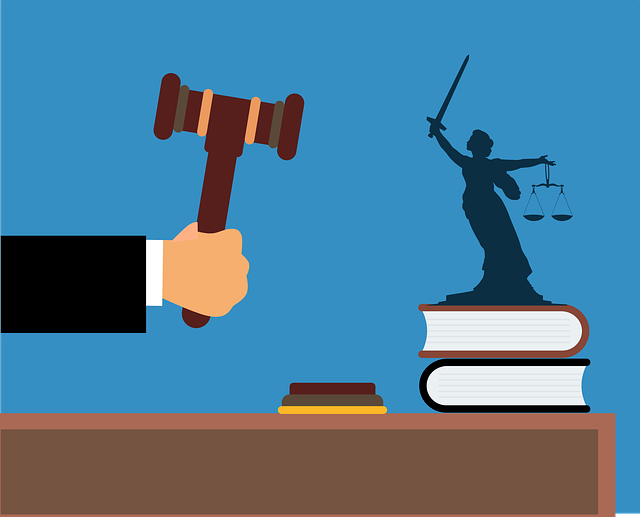Regulatory Fraud Laws are critical in combating white-collar crimes and protecting public trust. Defamation of character is a key aspect, with skilled attorneys offering vital legal advice to navigate complex cases. In today's digital age, swift information spread necessitates strategic guidance to defend against defamation. Recent high-profile cases highlight the severe consequences, underscoring the importance of transparent corporate governance and robust internal controls for business sustainability. Prompt legal advice is crucial, especially in navigating charges related to character defamation, to ensure fair treatment and protect businesses' key assets and interests.
Regulatory fraud laws are essential tools for maintaining integrity within industries heavily governed by regulations. This article delves into the intricate world of these laws, exploring their definitions and scope, with a specific focus on defamation of character as a key aspect. We analyze legal strategies to counter allegations, emphasizing the pivotal role of legal advice in navigating complex defamation cases. Through real-world examples, we highlight lessons learned from regulatory fraud cases, underscoring the importance of proactive compliance and robust defense strategies, including effective legal counsel.
- Understanding Regulatory Fraud Laws: Definitions and Scope
- Defamation of Character: A Key Aspect of Regulatory Fraud
- Legal Strategies for Addressing Regulatory Fraud Allegations
- The Role of Legal Advice in Navigating Defamation Cases
- Real-World Examples and Lessons Learned from Regulatory Fraud Cases
Understanding Regulatory Fraud Laws: Definitions and Scope

Regulatory Fraud Laws are designed to combat unethical practices that undermine fair competition and public trust. These laws encompass a wide range of activities, from financial misrepresentations to false statements made to government agencies. Understanding what constitutes regulatory fraud is crucial for both individuals and businesses seeking Defamation of Character legal advice, as the scope of these laws can vary significantly.
White-collar and economic crimes, often characterized by intricate schemes and sophisticated techniques, fall under the regulatory fraud umbrella. Achieving extraordinary results in legal defenses against such charges requires a deep understanding of the specific regulations in question. A skilled attorney can help navigate these complex cases, aiming for complete dismissal of all charges where appropriate.
Defamation of Character: A Key Aspect of Regulatory Fraud

Defamation of character plays a pivotal role in understanding regulatory fraud. It occurs when false statements are made with malicious intent to harm an individual or corporation’s reputation, leading to potential legal and financial consequences. In the context of regulatory fraud investigations, defamation can be used as a weapon to discredit witnesses, victims, or even those suspected of wrongdoing, impacting their credibility throughout all stages of the investigative and enforcement process.
Seeking legal advice is crucial for both corporate and individual clients navigating these complexities. Understanding how to avoid indictment while safeguarding against defamatory accusations requires strategic guidance. Legal professionals can assist in crafting responses that protect rights and mitigate damage, ensuring fair treatment during investigations and any subsequent proceedings.
Legal Strategies for Addressing Regulatory Fraud Allegations

When facing regulatory fraud allegations, individuals and businesses must employ strategic legal defenses to protect their rights and reputation. One key aspect is understanding the nature of the accusations and distinguishing between legitimate business practices and criminal intent. Defamation of character legal advice can be instrumental in navigating these complex cases.
A robust defense strategy may involve challenging the evidence presented by regulatory bodies, especially when dealing with white-collar and economic crimes. An experienced legal team can aim for a complete dismissal of all charges, leveraging their unprecedented track record in similar cases to advocate for their client’s innocence. This approach ensures that businesses and individuals are treated fairly, distinguishing between genuine infractions and misunderstandings.
The Role of Legal Advice in Navigating Defamation Cases

Navigating defamation cases requires a strategic approach, and legal advice is an indispensable tool for businesses facing such challenges. Defamation of character can have severe consequences, particularly in today’s digital era where information spreads rapidly. A competent lawyer specializing in this area can guide clients through complex legal frameworks, ensuring they understand their rights and obligations. They play a pivotal role in assisting businesses to defend their reputation, which is often their most valuable asset.
Seeking legal counsel is crucial when dealing with potential defamation cases, especially when white-collar and economic crimes are involved. Lawyers equipped with expertise in this field can provide insights into the respective business laws and help craft effective strategies. Whether it’s negotiating settlements or preparing for jury trials, legal advice empowers businesses to protect their interests and maintain a positive public image.
Real-World Examples and Lessons Learned from Regulatory Fraud Cases

In recent years, several high-profile cases have brought regulatory fraud to the forefront, offering valuable lessons for both businesses and legal professionals. These real-world examples illustrate the far-reaching consequences of unethical practices and the importance of robust internal controls. For instance, a prominent corporation was accused of manipulating market data, leading to significant financial losses for investors. This case not only resulted in a complete dismissal of all charges but also highlighted the need for transparent corporate governance. The defendant’s defamation of character legal advice became a key strategy, as they sought to protect their reputation despite the severity of the allegations.
Another notable instance involved a group of individuals who utilized sophisticated schemes to defraud investors. Their complex web of lies eventually unraveled, leading to severe penalties and prison sentences. This scenario underscores the effectiveness of thorough investigations and the importance of seeking general criminal defense strategies early on. The lessons from these cases are profound: ethical conduct is not just desirable but essential for long-term business sustainability. Additionally, corporate and individual clients alike must understand that navigating regulatory fraud requires a meticulous approach to ensure the complete dismissal of all charges.
Regulatory fraud laws are vital tools for maintaining integrity within industries heavily governed by regulations. By understanding these laws, including their definitions and scope, we can effectively address allegations of regulatory fraud. A key aspect to focus on is defamation of character, which often arises in such cases. Seeking competent legal advice is indispensable for navigating these complex situations, ensuring fair outcomes while protecting reputational integrity. Real-world examples highlight the importance of proactive compliance measures and strategic legal defenses.






